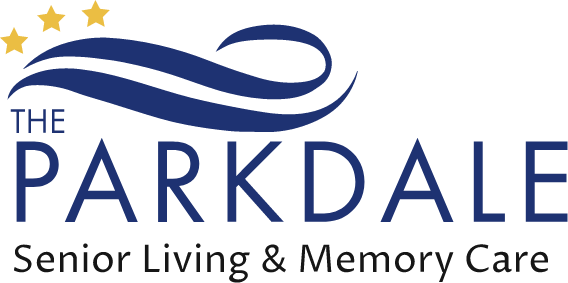February is American Heart Month, and no, not just because of Valentine’s Day. It is actually a whole month dedicated to focusing on maintaining the health and well-being of one of our most essential organs. As we age, cardiovascular health becomes a core focus, and this is for a good reason.
Did you know that 84% of people aged 65 or older die from heart disease? While the risk of heart disease does increase as you age and is a natural part of growing older, there are some measures you can take to help decrease the risk. So what can be done? Our senior living community in Macomb has some tips you might want to consider!
Heart Disease: The Signs and Symptoms
Unfortunately, most of the signs and symptoms of heart disease don’t occur until you are actually facing a heart attack. However, it is important to know them so that you can communicate to those around or to emergency services what is going on.
A few of the indicators of a heart attack are as follows:
- Feeling faint or weak
- A sensation of light-headedness
- Difficulty catching your breath
- Nausea or vomiting
- Feeling full, bloated, or having indigestion
- Pain, pressure, or discomfort in the chest
- Sweating
- An irregular heartbeat
- Atypical pains in the back, shoulder, or neck
If you are noticing these signs or symptoms, contact emergency services immediately. Or if you are with a friend or family member, have them call for you right away. Don’t wait! Getting help as quickly as possible could save your life.
Reduce Your Risk
In many cases, other health conditions contribute to the increase and development of heart disease. Treating heart disease and preventing heart attacks means taking a closer look at underlying conditions and doing your best to manage these. This can include
- Lowering your blood pressure
- Keeping your cholesterol low
- Managing your diabetes
- Taking medications to treat angina (chest pain)
Have a conversation with your doctor about what medications they might recommend that you take. For example, some people take baby aspirin once a day, or even nitrates, beta-blockers, and calcium channel blockers. While all of these can help, it is imperative that you don’t start on any new medications without consulting your physician first.
7 Ways to Prevent Heart Disease
Now it’s time for the big question: other than these medications, what can be done to help prevent heart disease? Below we have listed seven habits you can take on that will make a difference in improving your overall cardiovascular health.
1.) Get Enough Exercise
While this might seem like an obvious tip, it is listed right out the gate for a reason! Getting proper exercise will boost the strength of both your heart and lungs, as well as give you an improvement in your mood and mental health. Shoot for around thirty minutes 3-5 times a week for the best results. This doesn’t have to be strenuous exercise, even going for a walk with the family dog or doing some gardening outdoors will help! Here at our senior living community in Macomb, we are proud to offer our residents a diverse activity calendar to keep them healthy and engaged.

2.) Kick the Cigarettes
If you are a smoker, it is time to kick the habit once and for all. Not only does this drastically increase your risk of developing issues such as COPD and lung cancer, but it also greatly contributes to heart disease. As a matter of fact, those who smoke are two to three times more at risk of a heart attack than those who don’t and about every 1 in 4 heart attacks is linked to smoking.
3.) Eat Heart Healthy Foods
As much as we might love a loaded cheeseburger or chili cheese french fries, it does greatly impact our health. Every once in a blue moon as a treat is fine, but one of the best ways to prevent heart disease is by watching what you eat. Load up on fresh fruits and veggies, and when you go for protein, sub out red meat for healthier, lean options, such as chicken or fish. Put a limit on foods laden with saturated fats and cholesterol.
4.) Get Regular Check Ups
When looking at cardiovascular health, prevention is key. That is why it is important to check in with your doctor on a regular basis, and document your numbers. Pay close attention to your blood pressure and cholesterol levels, as well as your weight and heart rhythm. If you’ve been experiencing any changes or have noticed irregularities, speak up and let your doctor know right away. These could be indicators of changes in your cardiovascular health.
5.) Cut Down On Alcohol
One of the ways to improve your overall health, and in turn, your cardiovascular health, is by cutting down your alcohol consumption. Alcohol can contribute to factors such as high blood pressure, high cholesterol, and diabetes. Increase your water intake instead and you’re sure to see the difference!
6.) Minimize Stress
Life can get hectic, there is no doubt about that. While we don’t have a crystal ball that will help us to avoid any curve balls that get thrown our way, we can, however, control how we face these adversities. Stress is a huge factor to heart attacks, as it can increase our blood pressure, especially when compounded over time. That it is important to find healthy outlets to help you relieve stress. This can include exercising, knitting, yoga, coloring, and so much more! Just make sure that this activity can help you clear your mind and leave you feeling more centered and grounded.
7.) Watch Your Weight
Weight is another main factor that can cause heart disease. It is important to maintain a healthy weight for your height and age. If you’re not sure what that goal should be, ask your doctor. While losing weight is always easier said than done, by implementing some of the previous suggestions, you are sure to see an improvement in this area.



